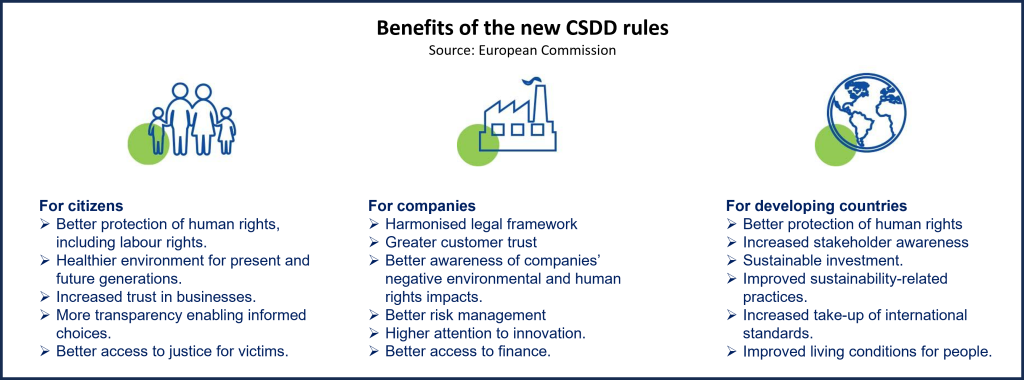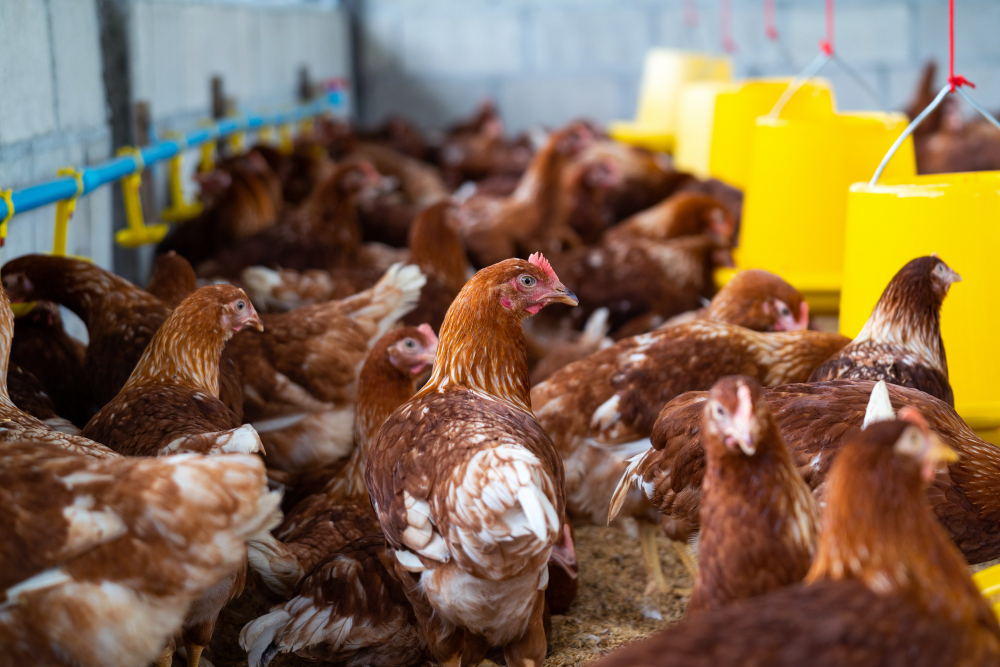Thailand produces 3.3 million tonnes of chicken meat annually (3.3% of global output) and its chicken exports account for 10.8% of the global market by value, the third highest. A recent EU-supported study conducted by Rapid Asia shows the need for the Thai poultry sector to comply with the forthcoming “Directive on Corporate Sustainability Due Diligence” from the EU.
In the past two decades, Thailand has risen as one of the world’s largest exporters of processed chicken, enjoying 28.9% global market share by volume and accounting for 86.8% of all Thai chicken exports. Furthermore, in 2022 and 2023, the country ranked as the 3rd largest supplier of poultry to the EU, confirming its important contribution to the food supply chain.
Due to the scale of the Thai poultry business, there is an increasing demand for more workers in the sector, which is higher than the available supply. Thus, migrant workers from neighbouring developing economies (i.e. Laos, Cambodia, and Myanmar) come to work in Thailand. However, they face various problems.
The combination of irregular immigration status and other factors, such as language barriers and weak domestic labour legislation, contributes to the increasing vulnerability of workers and risks of exploitation. Workers are also experiencing problematic working conditions which can lead to violation of their human rights.
The European Commission (EC) submitted its first proposal for the Directive on Corporate Sustainability Due Diligence (CSDD) on 23 February 2022. The law is expected to be approved in early spring 2024 to “foster sustainable and responsible corporate behaviour and to anchor human rights and environmental considerations in companies’ operations and corporate governance”. The Directive is important as it covers the companies’ value chains both inside and outside of Europe. As a prerequisite, the EU requires companies to show that they carry out environmental and human rights due diligence activities throughout their supply chains.

The study was carried out by Rapid Asia in August 2023 in Lopburi and Saraburi provinces to provide insight into the poultry value chain in Thailand and determine whether there is evidence to suggest that Thai companies do not always follow the due diligence standard established by the EU. Through qualitative interviews, the study explored social and human violations among female migrant workers in Thailand (as part of a global poultry supply chain). The study also reflects on the contributions and challenges of EU legislation in minimising the exploitation of workers.
The study has gained insight into the situation of migrant workers in Thailand, some of who work in industries that are poorly regulated and exposed to abuse and poor treatment, particularly female migrant workers. However, the study also found examples of good work conditions, particularly in larger factories.
The study proposed three broad recommendations.
- To reform worker recruitment systems, including promoting gender-based analysis of worker needs, improving legal assistance to ensure better safety and security
- To promote a system of growth towards quality and sustainability of the entire industry, including smaller rural farms.
- To adopt the CSDD Directive throughout the poultry sector value chain and in line with the UN Guiding Principles on Business and Human Rights.
Hence, all companies, regardless of their size, are expected to comply with the principles which will benefit all stakeholders in return.
To read more about Migrant women’s rights In the poultry supply chain in Thailand, please click here.
If you found this article useful, please remember to ‘Like’ and share on social media and hit the ‘Follow’ button never to miss an article.
About the authors: Daniel Lindgren is the Founder of Rapid Asia Co., Ltd., a management consultancy firm based in Bangkok that specialises in evaluations for programs, projects, social marketing campaigns and other social development initiatives. Israr Ardiansyah is an independent consultant working with Rapid Asia.

